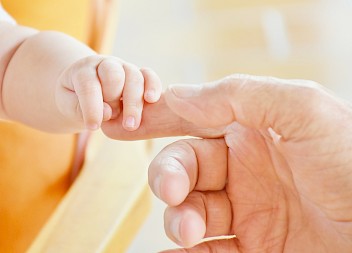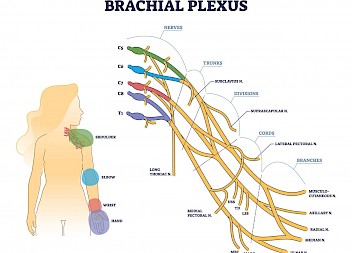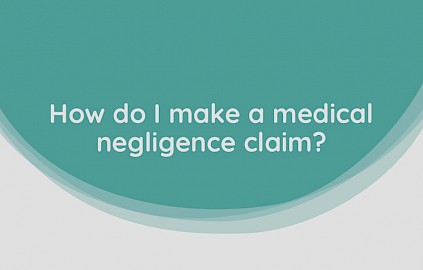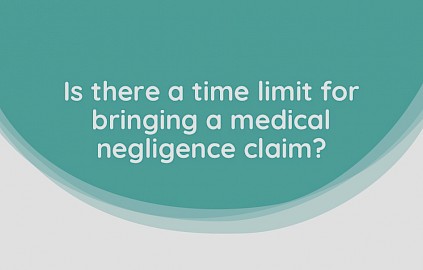Bringing an Erb's Palsy Compensation Claim
What is Erb's Palsy?
Erb’s Palsy, also known as Erb-Duchenne Palsy or brachial plexus birth palsy, is often caused when an infant’s neck is excessively stretched to the side during a difficult delivery. Erb’s Palsy is a form of brachial plexus (pronounced “BRAY-key-el PLEK-sis”) palsy. It is named after one of the doctors who first described the condition, called Wilhelm Erb. One or two of every 1,000 babies have this condition, so it’s not that uncommon.
The brachial plexus is a network of nerves near the neck that feed all the nerves of the arm. These nerves provide movement and feeling to the shoulder, arm, hand, and fingers. Palsy means weakness, and brachial plexus birth palsy causes arm weakness and loss of motion. This can have significant consequences if a baby does not recover from this after birth.
Symptoms of Erb’s Palsy include:
- Weakness in one arm
- Loss of feeling in the arm
- Partial or total paralysis of the arm
Thankfully, most infants with brachial plexus birth palsy will recover both movement and feeling in the affected arm, often with daily physical therapy exercises. Parents typically play an active role in helping their child recover maximum function in the affected arm.
Who can bring an Erb's Palsy negligence claim?
If you believe that the medical staff assisting you during birth did not take appropriate or sufficient steps to prevent Erb’s Palsy from affecting your child, you may be eligible to bring an Erb’s Palsy compensation claim on their behalf.
Brachial plexus stretch injuries in newborns usually occur during a difficult delivery, such as with:
- a large baby
- a breech presentation
- a prolonged labour
They may also happen when a birth becomes complicated, and the person assisting the delivery must deliver the baby quickly and exert some force to pull the baby from the birth canal. If one side of the baby’s neck is excessively stretched, the nerves may also be stretched, which can result in injury.
Some examples of medical negligence for Erb’s Palsy cases include:
- Failure to fully advise the mother of her birth options and their potential risks
- Prenatal failure to identify signs of a heightened risk of delivery complications, or to amend birthing plans appropriately
- Not referring the mother for a Caesarean where this would be the best course of action
- Use of excessive or unwarranted force during the delivery (such as unnecessary use of assisted birth instruments)
What Compensation Can You Claim?
The compensation you or your child can claim will depend on various factors, including the extent of the damage caused and how both the parent’s life and the child’s life will be affected going forward. This includes:
- Any care or physiotherapy rehabilitation costs
- Costs for any corrective surgeries, treatments and medication
- Necessary adaptations to your home or vehicle
- Loss of current earnings if a parent needs to take time off work to provide care to their child
- Loss of future earnings if the disability is deemed likely to affect the child’s earning potential when they grow up
- General damages for the child’s pain and suffering
You can only bring an Erb’s Palsy claim for the child who has Erb’s Palsy. However, the mother who gave birth can claim compensation under a more general birth injury claim if she has experienced injury or distress during the birth.
Time Limits on Erb's Palsy Claims
If you would like to bring a claim on behalf of a child, you can do so at any time, but it is best to do so as early as possible once you have identified the injury as the investigation will be easier.
If you do not bring a claim on your child’s behalf, they will be eligible to do so themselves from their 18th birthday, and they will have three years (until their 21st birthday) to bring the claim themselves.
Learn more about time limits in medical negligence claims.
Examples of successful Erb's Palsy compensation claims
Our team has been able to secure compensation upwards of £640,000 in birth injury compensation claims for vulnerable clients and their families who have been affected by Erb’s Palsy.
Our Director, Caroline Moore took on her first birth injury case in 1993 and has specialised in gynaecological and maternity claims in her many years of practice, since 1991. Director and Senior Solicitor Christine Brown as well as Senior Solicitor Sarah Johnson have
also developed expertise over the years in acting for infants and babies who have suffered from Erb’s Palsy and Cerebral Palsy.
- In one case, where a baby’s shoulder had become stuck behind her mother’s pelvic bone (known as shoulder dystocia), the obstetrician allegedly did not perform a manoeuvre known to help dislodge the baby’s shoulder, but instead pulled strongly on the baby’s head, resulting in an Erb’s Palsy that will affect the little girl for the rest of her life.
The claimant brought an Erb’s Palsy negligence claim when the child was sixteen, and was awarded £481,000, including compensation for past and anticipated future financial losses, as well as pain and injury.
- Another case was brought by a boy whose injuries are significant and permanent, and whose daily life is now affected by difficulty with basic needs, such as getting dressed and eating independently.
The claim on his behalf was awarded £348,600 due to the significant restrictions he will face in the workplace as an adult.
See our other Erb’s Palsy case studies.
Living with Erb's Palsy
In some children, the affected arm is noticeably smaller than the unaffected arm. This occurs because injured nerves can have a negative effect on growth. Although the affected arm will continue to grow as the child grows, it grows at a slower pace, and the size difference will become more noticeable as the child gets older.
Children are very adaptable. If you are a parent of a child with Erb’s Palsy, the best thing you can do is to be supportive and encouraging and focus on all the things your child can do. This will help your child develop a healthy sense of self-esteem and compensate for any limitations in motor function.
Treatment
Because most newborns with brachial plexus birth palsy recover on their own, your doctor will re-examine your child frequently to see if the nerves are recovering. Nerves grow and recover very slowly; it may take up to two years for a complete recovery.
If you do bring a successful Erb’s Palsy compensation claim against a healthcare provider, part of the compensation will cover ongoing and future medical needs, including treatment.
Nonsurgical Treatment
Daily physical therapy is the main treatment method for Erb’s Palsy.
Because a baby cannot move the affected arm all alone, parents must take an active role in keeping the joints limber and the functioning muscles fit. Your doctor or a physical therapist will teach you how to do exercises with your baby to keep your baby’s arm in good condition.
Daily physical therapy and range-of-motion exercises, done as often as possible during the day, begin when a baby is about three weeks old. The exercises will maintain the range of motion in the shoulder, elbow, wrist, and hand. This will prevent the joint from becoming permanently stiff, a condition called joint contracture.
Surgical Treatment
If there is no change over the first three to six months, your doctor may suggest surgery on the nerves to improve the potential outcome.
- Nerve graft
Depending upon the nerve injury, it may be possible to repair a rupture by “splicing” a donor nerve graft from another nerve of the child.
- Nerve transfer
In some cases, it may be possible to restore some function in the arm by using a nerve from another muscle as a donor.
Because nerves recover very slowly, it may take several months or even years for nerves repaired at the neck to reach the muscles of the lower arm and hand. After surgery, your doctor or physical therapist will provide rehabilitation exercises to perform at home to improve your baby’s strength and range of motion.
Nerve surgery does not typically restore full, normal function, and is usually not helpful for older infants.
Many children with brachial plexus injuries will continue to have some weakness in the shoulder, arm, or hand. There may be other surgical procedures that can be performed at a later date that might improve function. As your child grows, your doctor will discuss the various treatment options and make a specific recommendation based on your child’s individual situation.
How Medical Solicitors Can Help You
We have been supporting and winning compensation for our clients for over two decades. Operating throughout the UK, we have three offices in Yorkshire, and our expert team is made up of qualified solicitors, legal executives, legal assistants and administrative staff, including specialist Erb’s Palsy solicitors, who are here to listen and guide you through your clinical and medical negligence claim.
- We offer FREE, no obligation advice
- We can help determine if you have a claim
- We help you get your claim started and guide you throughout
- We offer help, advise, get answers and secure justice for our clients
- We offer No-Win, No-Fee agreements











